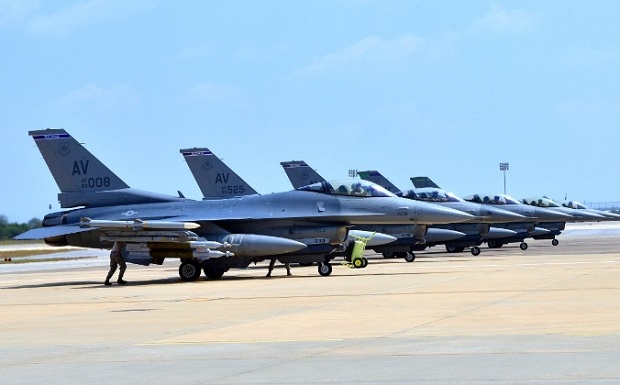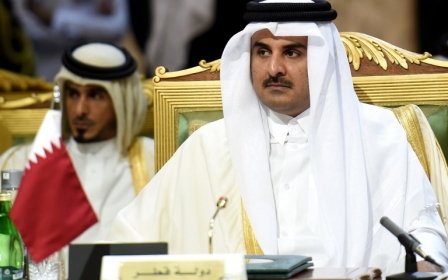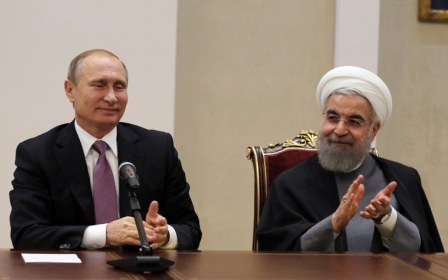Revealed: Secret details of Turkey's new military pact with Qatar

In December 2015, Turkey announced, to the surprise of many, that it planned to establish a military base in Qatar. Behind the scenes, the agreement was about forming a major strategic alliance.
After a 100-year hiatus, Turkey is militarily back in the Gulf and ramping up its presence overseas. In January, Ankara announced that it would also establish a military base in Somalia.
Specific details about the Qatar agreement, which Turkey described as an alliance in the face of "common enemies", remain scant, but Middle East Eye has acquired copies of the agreements, as well as further details, which include a secret pledge by Ankara to protect Qatar from external threats.
A long time coming?
Turkish-Qatari defence and military agreements go back nearly a decade. In 2007, Ankara and Doha signed a defence industry cooperation agreement, and in 2012, signed a military training agreement.
In March 2015, the Turkey-Qatar Military Cooperation Agreement was passed by the Turkish parliament, but the negotiations to create an overarching comprehensive agreement were still ongoing. Only in July 2015, according to France-based Intelligence Online, did the Qatari Emir, Tamim bin Hamad al-Thani, first tell the Saudi king about the true extent of the agreement. Under the agreement, about 3,000 Turkish troops, air and naval units, as well as special forces are to be based in Qatar for training and joint exercises. The two countries also promised greater bilateral cooperation between intelligence services.
Riyadh reportedly welcomed the deal to help counter Iran's growing regional influence as Turkey's military's presence will bring additional foreign muscle in the Gulf, joining the United States' Al Udeid air base in Qatar, the French naval base in Abu Dhabi, and the US and British naval bases in Bahrain, among others.
But the move was not unanimously accepted in the Gulf Cooperation Council (GCC). When Abu Dhabi got wind of the agreement in the wake of the 35th GCC summit in December, it was not viewed positively, with the Emirates fearing stronger Turkish-Qatari ties could reverse the regional fortunes of the down-on-its-heels Muslim Brotherhood.
A comprehensive agreement
According to the news outlet Intelligence Online, the head of Turkey's National Intelligence Organisation (Milli Istihbarat Teskilati – MIT) made multiple trips to Doha in December to cement a secret pledge that Ankara would protect Qatar from external military threats. In return, Doha would help offset Ankara's strained relations with Moscow following Turkey's downing of a Russian jet. Qatar would shore up the Turkish economy due to the loss of Russian tourists – estimated at some $3bn - as well as provide gas export guarantees if Moscow turns off the taps.
While the economic assistance is a typical sweetener by Gulf states securing bilateral agreements, it is the defence pledge that is of greatest significance. Whether the pledge has been actually signed has not been reported outside of Intelligence Online. There is no mention of it in the comprehensive agreement that was signed in December, but talks are reportedly ongoing.
“Turkey and Qatar are in the process of devising a possible 'Status of Forces Agreement'. In the deliberations that are said to be under way, the two sides would have discussed the incorporation of a casus foederis ["case for the alliance"] clause in the agreement,” said Dr Eyup Ersoy, an international relations expert at Turkey's Bilkent University.
“However, first, this clause, if agreed upon, could be confidential and may not be revealed to the public. Second, the substance of the clause, again if agreed upon, would be qualified. For example, it may read that Turkey will provide diplomatic and military assistance to the extent possible in case of armed aggression against Qatar. In other words, it may not be unequivocal and unconditional.”
As such, the agreement may not be overly different from unwritten pledges by the UK and the US to aid the Gulf states in the advent of an attack, last evidenced in the 1990 Gulf War. What is clear from the comprehensive agreement is that the Turkish base will be under Qatari control, with the possibility for Qatar to establish a base in Turkey.
While the agreement states that Turkey is to cover the Qatari base's expenses, there are no details about overall costs.
“Since the base is to be under Qatari military structure, it is simply a Qatari base put to the use of the Turkish military, so Doha will bear the financial costs of it,” said Ersoy.
If this is the case, it will follow the precedent of Qatar reportedly covering the $1bn construction cost of the US's Al Udeid air base.
Strategic goals
That the two countries have become closer through the agreement has not come as a surprise.
“Turkey has been pursuing a strategic relationship with Qatar for over a year. I don't think it was necessary to sign the deal as it was very obvious to anyone watching,” said Jonathan Schanzer, vice president for research at the Foundation for Defense of Democracies.
Ersoy however thinks the agreement was essential to provide a legal foundation and create political legitimacy to further Ankara's goals in the Gulf, even if the "Status of Forces Agreement" is not made public.
“In my view, the ‘real’ motivation, from Turkey’s perspective, is to transform the regional alignment with Qatar into a tentative alliance. This military cooperation agreement is imperative for the sustainability of Turkey's strategic relations between Qatar, and by extension, between Turkey and the Gulf,” he said.
The two states had found a common cause in meddling in the so-called "Arab Spring", particularly in Egypt, where both support the Muslim Brotherhood, as well as in Syria. Their backing of the Muslim Brotherhood had invoked the ire of other GCC states, especially the UAE and Saudi Arabia.
But since the overthrow of Egyptian president Mohamed Morsi in 2013, and Riyadh last year reconciling itself with the party, Ankara is using Doha as an inroad to the rest of the Gulf.
Furthermore, Turkey is being viewed as an additional line of defence against Iran following the normalising of relations with Tehran by the West. This is considered the prime motivation for the agreement. In December, the Turkish ambassador to Qatar had told Reuters that the agreement was to face "common enemies," considered a veiled allusion to Iran.
“I don't know if the US would fight for Qatar, as the whole region is afraid that the US has sold them out to Iran. The [Turkish] soldiers in Somalia are there for formality, to show the flag, whereas in Qatar it's a real fighting force,” said Atilla Yesilada, an Istanbul-based analyst at Global Source Partners, Inc.
Common enemies
Turkey's move into Qatar, and the GCC's general acceptance of the deal is considered a form of security diversification. David Roberts, a lecturer in the Defence Studies Department of King’s College London, thinks that the Gulf has interpreted US strategy incorrectly, that the pivot to Asia is not about abandoning the GCC but rather a pivot away from Europe.
“There is perhaps a slight loss of confidence, and the US are blue in the face about it. What can they possibly do? They have invested huge amounts in Al Udeid, which has a major role in the US defence review,” he said. Indeed, since 2009, Al Udeid has been the headquarters of the US Central Command (CentCom), covering 20 countries in the region.
The US is considered to have approved the strategic alliance, not wishing to ruffle the feathers of either country in the current regional environment.
“I'd not expect to see anything from CentCom on this, given how important the Incirlik air base [in Turkey is for strikes against the Islamic State group] and the Al Udeid base is to the US,” said Schanzer.
The US is not however expected to be undermined when it comes to arms deals with Qatar or the GCC at large, with Turkey only accounting for 2.4 percent of overall sales to the GCC between 2010-14 (by comparison the US is 48.1 percent and Britain 18.6 percent), according to SIPRI figures.
“For Turkey it could be a golden opportunity to develop their military-industrial complex by cashing-in with Qatar. However, they've kind of missed the boat a bit as Qatar is cutting back on spending - the military not so much - but it's not the good old days,” added Roberts.
The training aspect of the agreement also does not appear to be of major strategic important to Qatar.
“What is this alliance about? If it is about military training with counterparts, Qatar already has the Brits and the Americans doing training. How many trainers do you need? And they already have a smorgasbord of international equipment, although it is another NATO country [Turkey] joining them. Qatar is in desperate need of one unified security document,” said Roberts.
Turkey Qatar Comprehensive Agreement Pages 18-24:
Turkey Qatar Military Training Cooperation:
Turkey Qatar Defense Industry Cooperation:
New MEE newsletter: Jerusalem Dispatch
Sign up to get the latest insights and analysis on Israel-Palestine, alongside Turkey Unpacked and other MEE newsletters
Middle East Eye delivers independent and unrivalled coverage and analysis of the Middle East, North Africa and beyond. To learn more about republishing this content and the associated fees, please fill out this form. More about MEE can be found here.




